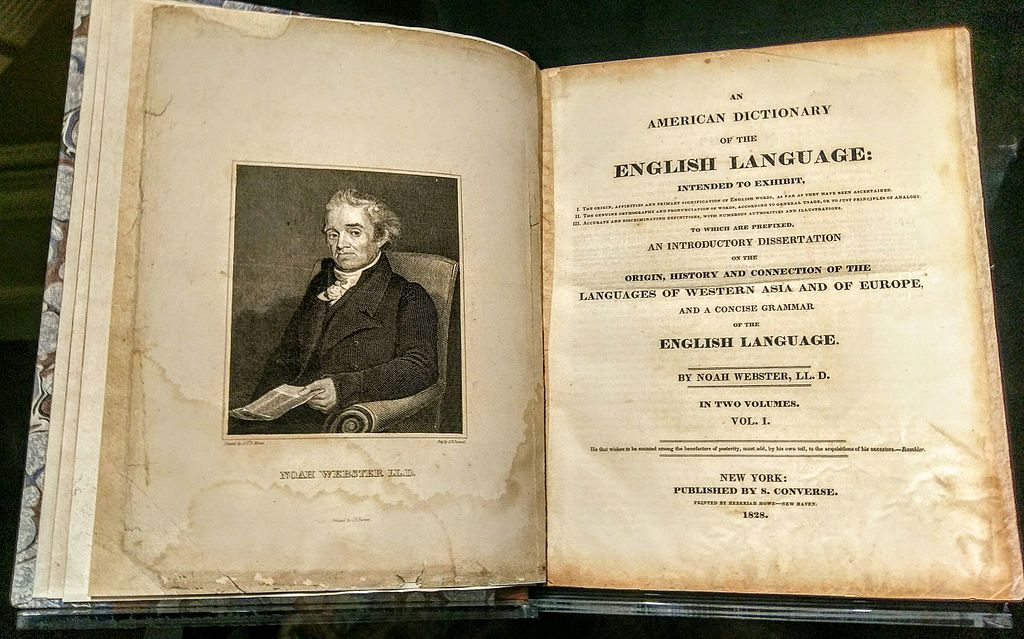What Can We Learn from Merriam-Webster’s Top Ten Words?

Now that more than half a year since Merriam-Webster (as in Webster’s dictionary) released this list of its most searched words for 2019, I thought it might be fun to revisit it. I wrote most of this in response to a reporter query last December on what this list says about our society. The parts in italics are written in July, 2020, with the benefit of hindsight.
THEY: The Word of the Year is enormous recognition for the rapidly growing nonbinary community. I too have a child who now uses they/them/their, and so do many of their friends. This is a choice I might have made for myself in my 20s (and might still make in the future). A friend remarked to me recently that our generation (I’m turning 63 next week)(that was in December; next December will be my “Paul McCartney birthday”) worked to eliminate gender roles, while Millennials work to eliminate the concept of gender itself.
QUID PRO QUO: Asking for a favor in return for another favor. The search popularity of this phrase indicates that people want to understand what’s really true. For a public figure to be caught flat-out asking the president of another country, using the language, “a favor,” and then claiming there is no quid pro quo makes people wonder what this public figure has to gain from such an obvious lie–and what does it mean for a president to call on a foreign power to investigate his likely opponent. It also brings up questions about why foreign policy is being weaponized for personal political gain, threatening to deny already-approved aid an ally that is under attack by a neighboring superpower. We have an administration that tries to weaponize just about anything, refuses to work with Democrats in any meaningful way, and has spent the entire first half of 2020 sewing division and stupidity in everything from how to contain a virus pandemic to how to treat immigrants and refugees.
IMPEACH: Since this [impeachment of a president] was only used three times previously since the founding of the Republic, voters–especially those age 35 and under who probably don’t remember the last time–want to know exactly what it means, when it may be invoked, what the consequences are, and perhaps what the Founders had in mind when they wrote it into the Constitution. The high level of interest shows that we are not nearly as apathetic and apolitical as the media would portray us. Andrew Johnson and Bill Clinton were impeached, as was the current president; Richard Nixon resigned under threat of impeachment. What we’ve proven in 2020 is that there is, unfortunately, no requirement that the Senate discharge its duties properly. With minds already made up for acquittal, Senate Republicans other than Mitt Romney refused to hear evidence or call willing witnesses and ignored the copious violations of law, ethics, and the Constitution by the most corrupt and least qualified person ever to hold the office. I hope many of these Senators are defeated in November.
CRAWDAD is a bit of an outlier in that it has nothing to do with politics. It does show that even in our device-oriented world, a book can still make an impact on the way we talk, and that English is such a rich language in part because it borrows so liberally from other tongues.
EGREGIOUS: Although the Merriam-Webster (M-W) example cited is about the Boeing 737 Max scandal, a lot of this word’s popularity also has to do with the political situation. Searching “egregious trump” brings up 2,470,000 hits on Google, while “egregious boeing max” returns only 178,000.
CLEMENCY: Essentially a form of pardon. This year’s use of the word is particularly interesting because the Tennessee case cited on M-W’s page of a woman who murdered her abuser being granted clemency contrasts so sharply with the recent Kentucky governor’s grant of clemency for more than 400 felons on his last day in office, including one convicted of child rape and another whose murder victim was beheaded and stuffed into an oil drum–and another whose family held a campaign fundraiser for that governor.
THE is an example that craziness can gain entry to the list. Adding the word “the” to an official university name is just a marketing stunt that should have been ignored. But it does revisit many interesting issues about rebranding, going back at least as far as 1972, when Standard Oil’s US division gave up the warm and cuddly Esso for the cold, corporate Exxon, but the Canadian branch kept Esso.
SNITTY is an apt description for much of what passes for public discourse these days, including on social media. While I’m not personally a fan of Barr, I enjoyed his use of this term as cited on M-W’s page.
TERGIVERSATION is new to me. George Will actually apologized for using such an obscure word in describing the hypocrisy of Senator Lindsey Graham, once a strong critic of Trump and now one of his staunchest defenders. It has been fascinating to see George Will, an apologist for Republican presidents back to the Nixon-Ford era, become ever-more-clear that this one is not fit for office. Even Fox News gave huge play to Will’s late-May call to remove not just Trump but his “congressional enablers.”
CAMP: Ahh, a relief from politics that might hearken back to they/them/their as nonbinary pronouns. This has been around in the gay subculture for decades; I encountered it in the early 1970s. As conservatives try to double down on “traditional” family structures, expressions of camp creep ever-more-frequently into the wider culture, and society as a whole is a lot more accepting of male fashionistas (as an example). If you want a wonderful example of how gay male camp can take a court-jester role and use humor to attack the current administration, watch a few Randy Rainbow videos. They’re great fun. A recent one, “Bunker Boy”, is one of my favorites, and also one of the recent ones. You can find many of them at this search results page.
EXCULPATE: Now we’re back to the heart of the matter: the question several of these words and phrase raise about corruption in the conduct of senior government officials. Mueller said the report did not exculpate, and the quid pro quo demand makes it clear that the behavior hasn’t changed, either. Of course people will want to know whether their president was exculpated, and what that means.
Taken as a totality, these words show a keen interest in the legal challenges to the Trump administration. When we note that justice and feminism were the top words of the administration’s first two years, and we look at the enormous growth in protest movements immediately following the 2016 election (engaging millions of people who had not been active before, or had not been active in decades) 2018 and 2019 elections as well as the surge in popularity of presidential candidates who would have been considered fringe-left not that long ago, we see that these lookup spikes tell an important story about a growing and powerful movement for deep social change. We see that despite a rightward, authoritarian trend in governments around the world, there’s a strong undercurrent for social justice, and that includes bringing a cruel and corrupt president to justice. And while the centrist Biden came away the winner in the Dems’ nomination process, he has shown himself far more willing than I would have expected to embrace many elements of the progressive agenda, and to build real coalitions with progressive leaders including Bernie Sanders and Elizabeth Warren.

